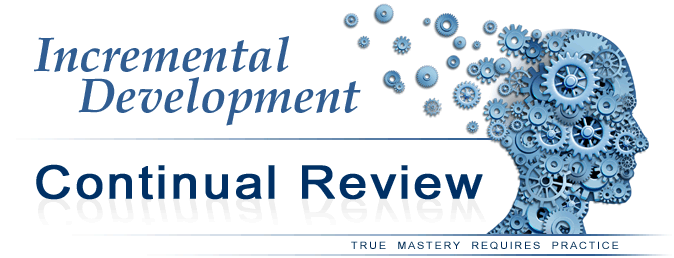Grammar and Writing Pedagogy

A word from Saxon® author Stephen Hake:
In the 1986 Disney® movie Flight of the Navigator, a 12-year-old boy is abducted by space aliens who plan to use the boy’s brain to store star charts. Eight earth-years later, they abandon the experiment. Why? Because the boy’s brain leaks; his memory erodes.
Anyone who has ever taught 12-year-old boys or girls could have saved those aliens the trouble, because teachers know all too well that students forget. An effective curriculum must take this fact into account and make appropriate accommodations.
In the early 1980s, John Saxon began publishing a math program designed to help students remember skills and concepts that they would need during their years of education and throughout their lives. Two unique features distinguished the Saxon program from its competitors: incremental development and continual review.
- Incremental development changes the order of instruction. Lessons on a topic are not grouped into a chapter that is hastily learned and quickly forgotten. Rather, lessons on a topic are spaced over time, giving students the opportunity to master one step of instruction before attempting the next step. Some critics say that Saxon books are disorganized. No. They are differently organized. Instead of being organized for easy reference, Saxon books are organized for easier learning.
- Continual review changes the way skills are practiced. Instead of working on 30 exercises of the same kind each day, students work on 30 exercises that practice the skills and concepts presented to that point in the program. In other words, every day is a review day that also includes a few questions on the new lesson. Continual review gives students time to grasp a concept deeply and to move the learning from short-term to long-term memory. Further, students begin recognizing the interconnectedness of concepts instead of viewing skills in isolation.
Grammar and Writing follows the Saxon pedagogy of incremental development and continual review. This approach may be new to some educators, but over 30 years of experience and research confirm that incremental development and continual review contribute greatly to student achievement.